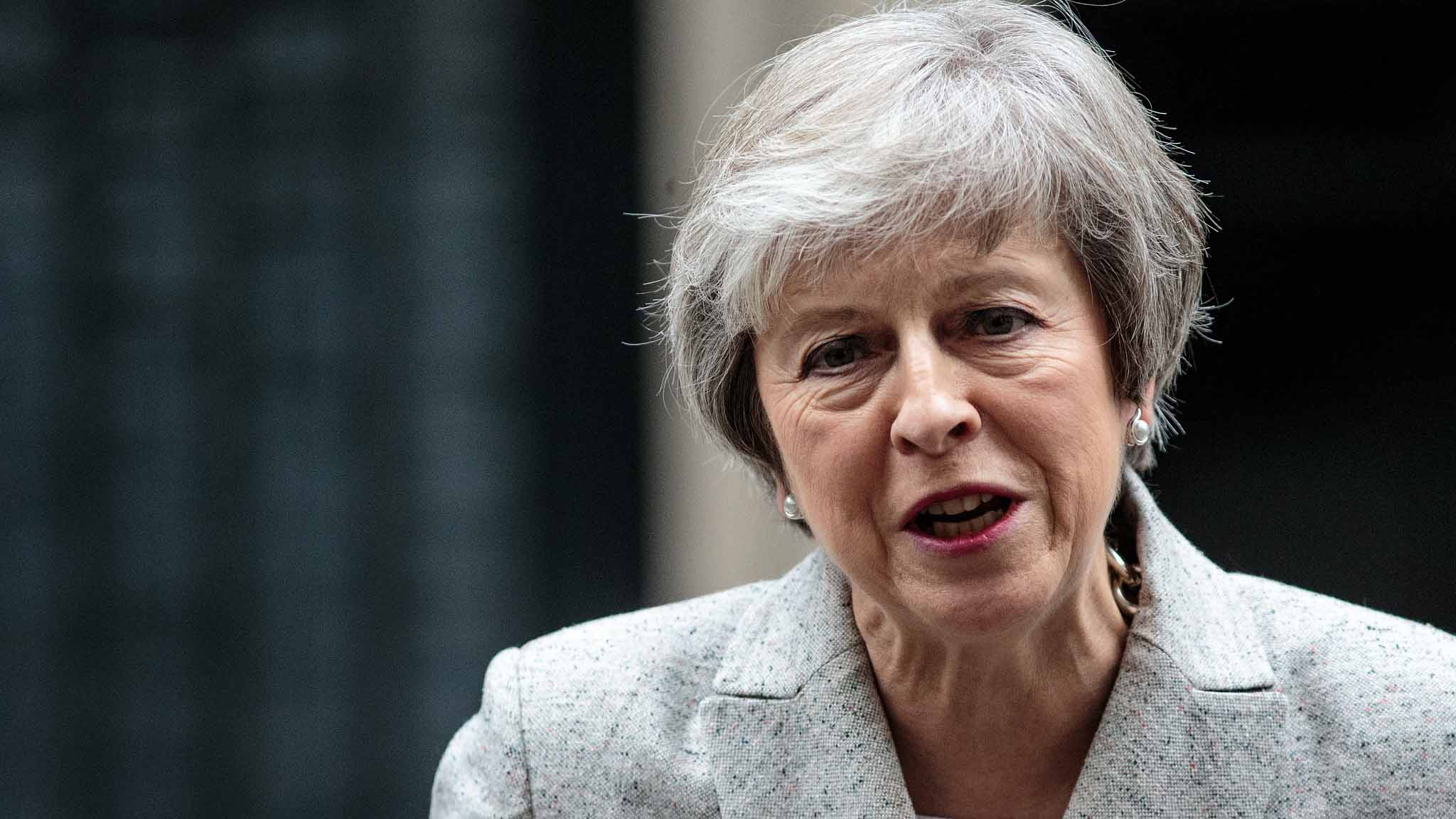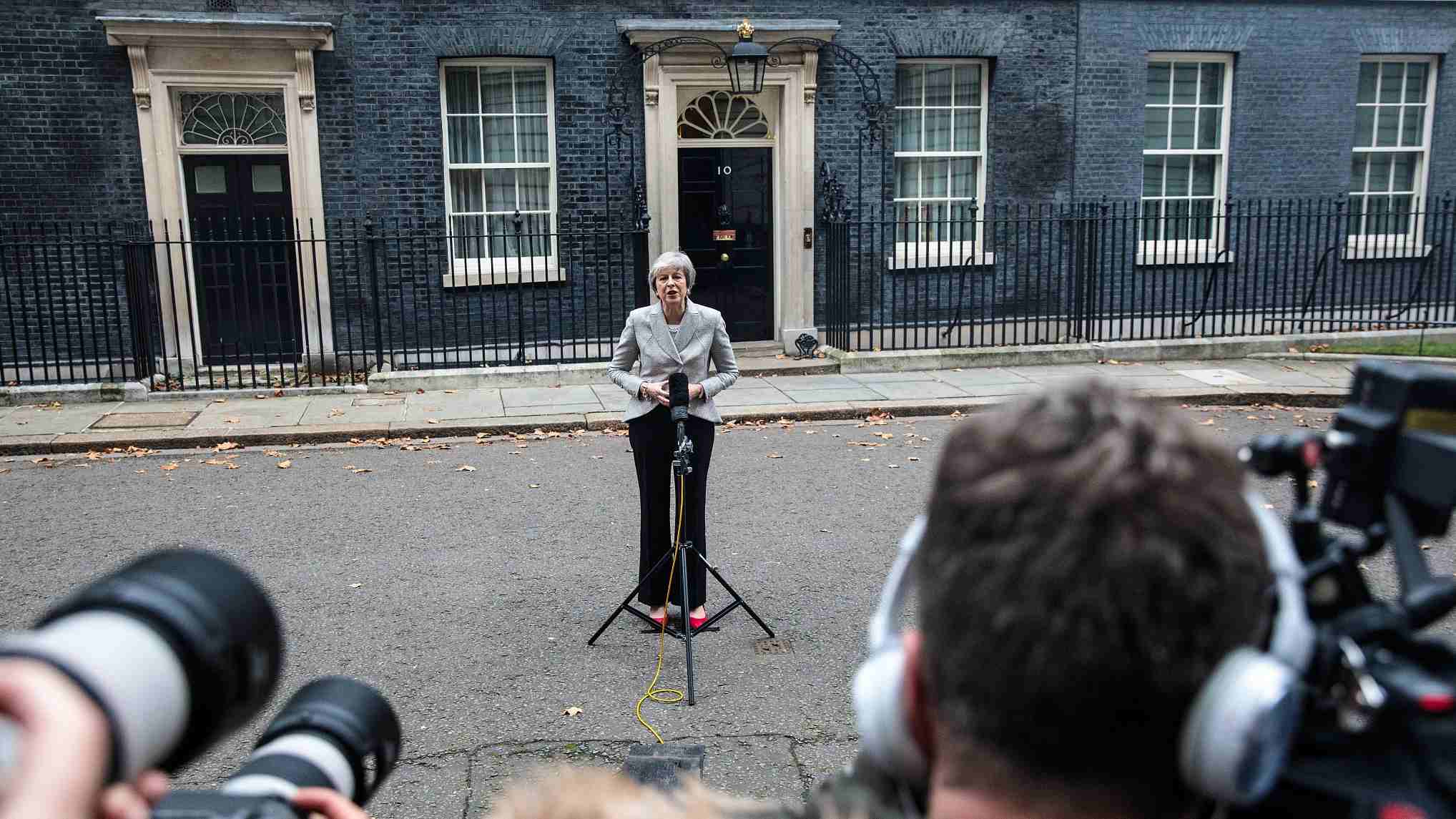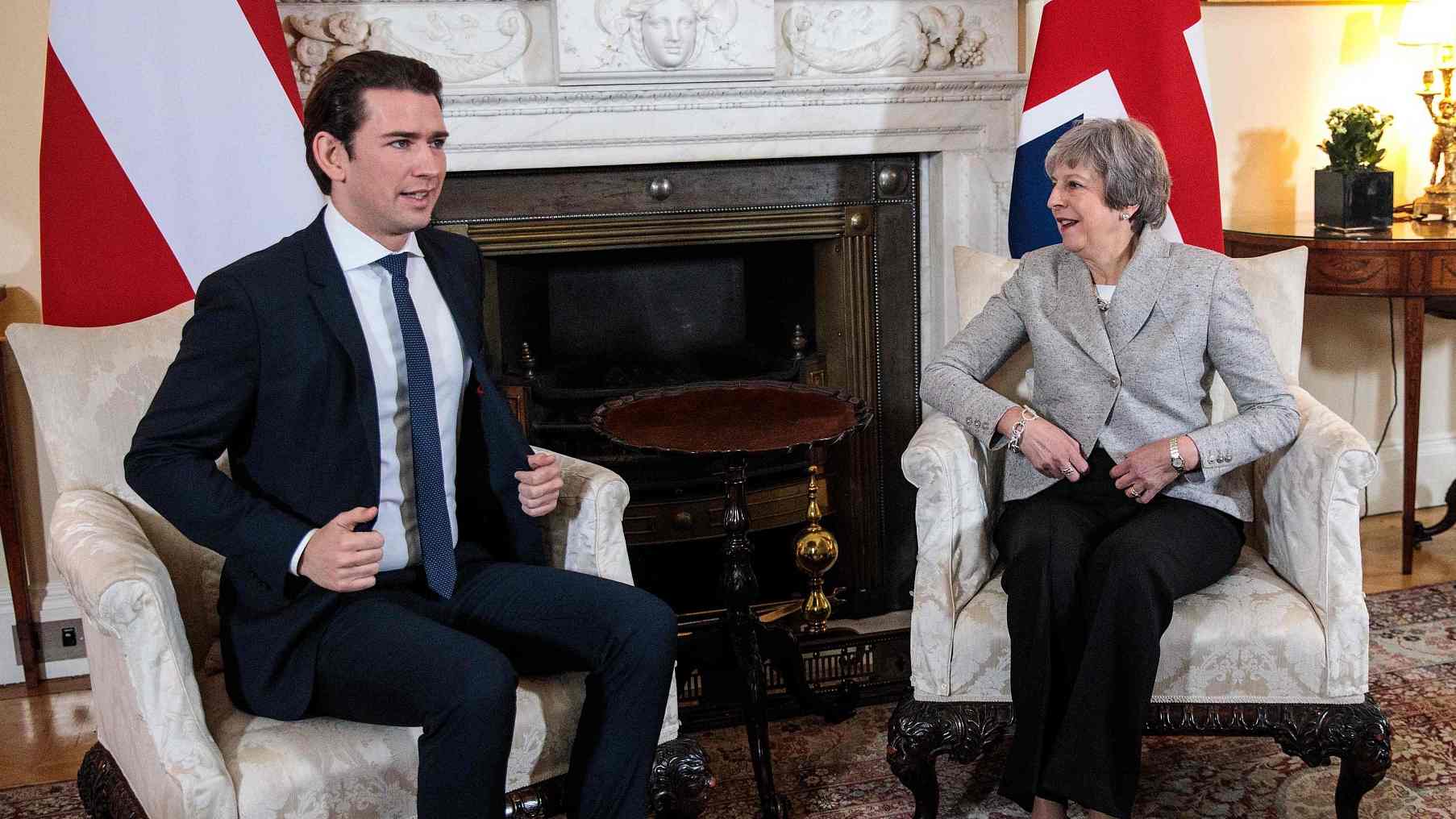
Politics
12:28, 23-Nov-2018
May under renewed attack after striking post-Brexit deal with EU
Updated
12:23, 26-Nov-2018
CGTN
01:16

British Prime Minister Theresa May on Thursday fended off heavy opposition in parliament after Britain and the EU agreed on the outlines of post-Brexit ties as part of a draft deal to be put to EU leaders on Sunday.
EU Council President Donald Tusk said the 26-page declaration covering trade, security, the environment and other issues was agreed "in principle" and would be sent to the other 27 member states for approval.

Twitter Screenshot
Twitter Screenshot
The pound rose by about one percent against the dollar and also firmed against the euro on the news, which allayed fears Britain could leave the European Union next March with no new arrangements in place.
But the deal does not address the thorny issues of fishing rights and Gibraltar, which have raised concerns in EU capitals.
Read more:
After the draft declaration was agreed on Thursday, Spanish Prime Minister Pedro Sanchez repeated a threat to sink the deal if Madrid's concerns on Gibraltar were not met.
And the deal could still yet be rejected by the British parliament. British MPs of all parties criticized the divorce agreement announced last week, which includes a financial settlement and a controversial plan to avoid a hard Irish border.
Obstacles in the UK
May hopes the promise of future cooperation will act as a sweetener to persuade her own Conservative MPs and any wavering opposition lawmakers to back her.
But her critics were quick to point out that the political declaration was not legally binding, unlike the terms of the divorce.
Former foreign secretary Boris Johnson, who is seen as a potential leadership rival, said the draft deal "makes a complete nonsense of Brexit."

British Prime Minster Theresa May makes a statement on Brexit outside 10 Downing Street in London, November 22, 2018. /VCG Photo
British Prime Minster Theresa May makes a statement on Brexit outside 10 Downing Street in London, November 22, 2018. /VCG Photo
Other leading pro-Brexit Conservative MPs, as well as her Northern Irish allies the Democratic Unionist Party, urged May to renegotiate the divorce agreement to remove a contentious legal guarantee to ensure an open Irish border.
Opposition Labour leader Jeremy Corbyn confirmed his party would not back it, saying: "This is the blindfold Brexit we all feared, a leap in the dark."
Obstacles in EU
The issue of Gibraltar remains, with Spain demanding a veto over applying any agreement on post-transition relations to the territory on its southern border which it has long claimed.
Austrian Chancellor Sebastian Kurz, current holder of the rotating EU presidency, conceded the problem as he arrived for pre-scheduled talks with May at Downing Street.

Britain's Prime Minister Theresa May meets with Austria's Chancellor Sebastian Kurz at 10 Downing Street in London, November 22, 2018. /VCG Photo
Britain's Prime Minister Theresa May meets with Austria's Chancellor Sebastian Kurz at 10 Downing Street in London, November 22, 2018. /VCG Photo
"There are some issues now regarding Gibraltar with Spain, but I hope that we can keep the unity among the 27," he said.
May, who spoke to Prime Minister Sanchez about the issue on Thursday, took a firm line, however. "Gibraltar's British sovereignty will be protected, and the future relationship we agree must work for the whole UK family," she told MPs. But late Thursday Sanchez maintained his threat to scupper the deal.

Twitter Screenshot
Twitter Screenshot
"After my conversation with Theresa May, our positions remain far away. My government will always defend the interests of Spain," Sanchez wrote on Twitter. "If there are no changes, we will veto Brexit."
Political declaration
The deal was struck after through-the-night talks between British and EU negotiators, which followed a last-minute visit to Brussels by May for a meeting with European Commission President Jean-Claude Juncker.
She will return on Saturday, on the eve of a special summit where all 28 EU leaders are expected to sign off on the overall Brexit package.
The texts must be cleared by a meeting of top EU diplomats – the summit's so-called "sherpas" – on Friday.
The political declaration says future ties will be wide-ranging, covering economic cooperation, law enforcement and criminal justice, foreign policy, security and defense.
It includes references to Britain developing "an independent trade policy" and declares an end to free movement of citizens between Britain and the EU – two key demands of the Brexit campaign in the 2016 referendum.
Source(s): AFP

SITEMAP
Copyright © 2018 CGTN. Beijing ICP prepared NO.16065310-3
Copyright © 2018 CGTN. Beijing ICP prepared NO.16065310-3